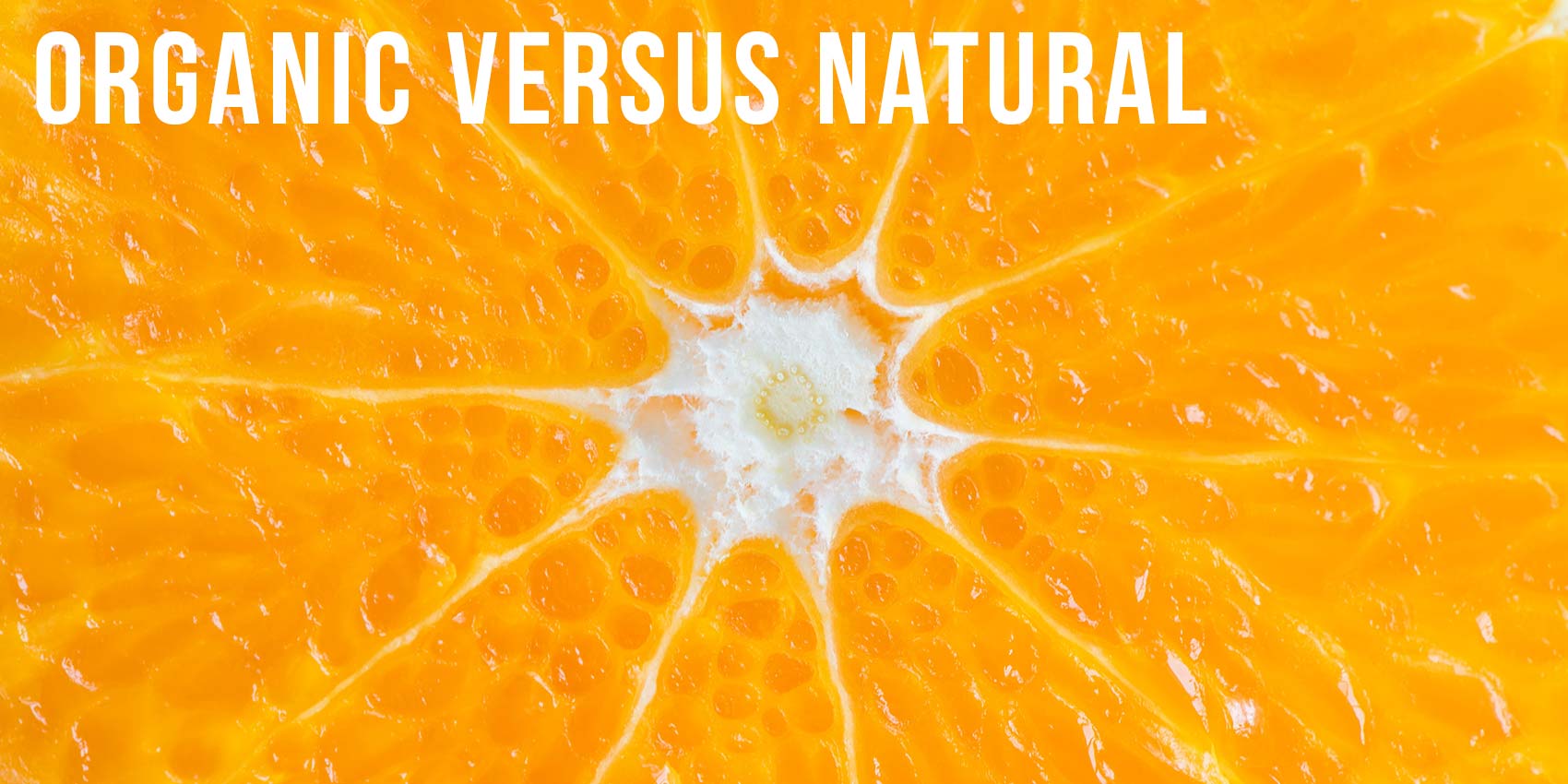30 Sep Organic versus natural

“Organic”, “All-Natural”, “Conventional”…huh!?
written by Rachel Shapiro
We often see the words “Organic” and “Natural” on food items in stores. Is there a difference? If so, what is it? Are natural and organic products different from “conventionally” grown food? Read on to find out…
The main difference between “organic” and “natural” foods is that organic products are regulated by the United States Department of Agriculture and have to meet the restrictions and guidelines set out by the National Organic Program.
Organic products are grown without synthetic pesticides and herbicides and do not include genetically modified foods (GMO’s). The ground in which the product is grown has to be free of synthetic pesticides for a minimum of three years before the harvest of an “organic” crop.

DID YOU KNOW? “A GMO, or genetically modified organism, is a plant, animal, microorganism or other organism whose genetic makeup has been modified in a laboratory using genetic engineering…” (Source: https://www.nongmoproject.org/gmo-facts/what-is-gmo/ ) Why do this? Well, for example, manufacturers can modify plants so that they are resistant to certain bacteria or bugs, which means they don’t have to use as much pesticides in the growing process. Great right? Well some people think yes, others think no. Some people believe that genetically modifying plants may cause unforeseen problems in humans. Since the plant is altered, people are worried about what those alterations will do to humans.
Natural is supposed to mean “the product does not contain any artificial flavor or flavoring, coloring ingredient or chemical preservative, or any other artificial or synthetic ingredient; and the product and its ingredients are not more than minimally processed.” (USDA’s Food Standards and Labeling Policy Book.) However, natural products are not well regulated. In fact, the term “natural” has become popular as a marketing gimmick to entice people to buy products that may have harmful ingredients that are not required to be listed on labels or packaging.
Conventional products are usually treated with synthetic chemicals that can be harmful to both our bodies and the earth.
You may wonder if it’s important to avoid synthetic chemicals and if so, why? The short answer is YES. One of the most important things you can do for your health is to avoid putting toxic chemicals into your body. While our bodies are amazing machines that can adapt to surprising circumstances, like any machine, if not treated with respect and kindness they will break down.
The main benefit to buying organic products is the lack of harmful chemicals used in the growing process. These chemicals damage the environment and require extra energy to process through our bodies and rob us of vital nutrients that are necessary to run at our optimal level of performance.
In the absence of these chemicals, our bodies are free to absorb the nutrients in the food without expending energy to clean out the stuff that’s not useful. There is no conclusive evidence that organic foods are higher in nutritional content than conventionally grown or natural products but there is evidence that the soil is healthier when using organic farming practices.
Conventional farming relies heavily on large scale, “mono-culture” farming methods. Planting one crop in thousands of acres of fields repeatedly season after season depletes the soil of nutrients and requires the use of ever-increasing amounts of synthetic pesticides and fertilizers to produce the desired end product. This creates an imbalance in the ecosystem and the chemicals used to grow the food end up in our bodies after we eat it.
Organic farming methods focus on sustainable practices that take the health of the soil into account as well as the quality of the end product. Not only are they healthier for us but they’re healthier for our planet!

DID YOU KNOW? In simplest terms, sustainable agriculture is the production of food, fiber, or other plant or animal products using farming techniques that protect the environment, public health, human communities, and animal welfare.
(Source: http://www.sustainabletable.org/246/sustainable-agriculture-the-basics)

Taste Test Challenge
Here’s your chance to test out the theory that organic food just tastes better. Get a group of friends or family together and do a blind taste test to see whether you think there is any difference between organic and conventional foods. Below are some good foods to try out…
Bananas- (but makes sure each type of banana has the same amount of yellow/green because ripeness will really change the taste!)
Chicken
Milk
Apples
Celery
Tomatoes




Post Question:
Do you seek out foods that are organic? natural? artificially flavored? What are terms that you look for?
Answer the post question here
What's being said